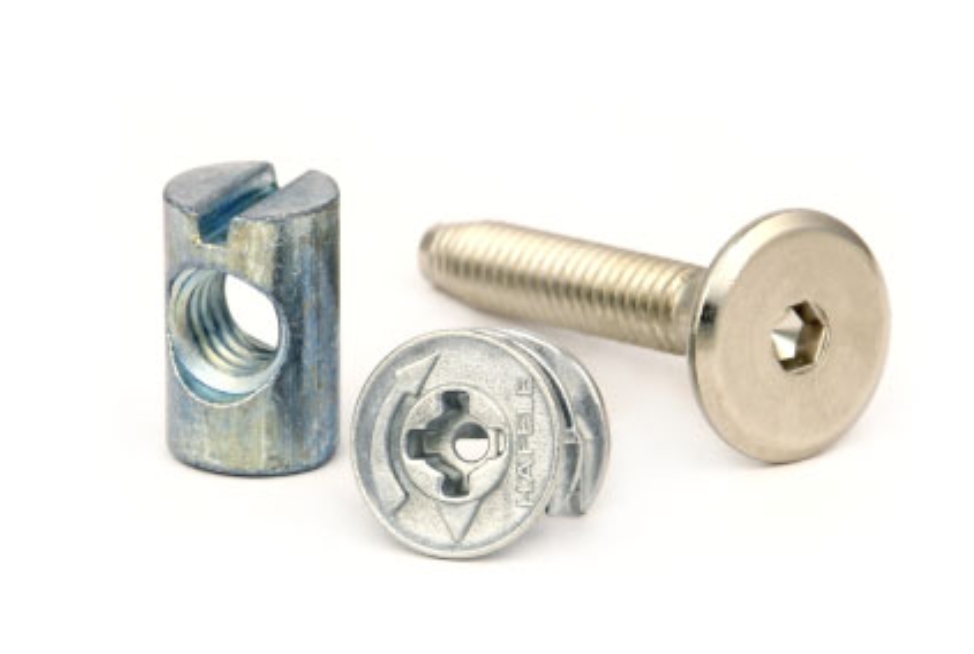Delta 9-tetrahydrocannabinol (Delta 9-THC) is the primary psychoactive compound found in cannabis. Its effects are well-known and widely studied, but one of the key concerns for users and testers alike is understanding How Long Does Delta 9 Stay in System. This knowledge is crucial for various reasons, from drug testing in employment scenarios to personal health considerations.
The duration that Delta 9-THC remains detectable in the system depends on several factors, including frequency of use, metabolism, and the type of drug test administered. This comprehensive guide aims to provide a detailed look into How Long Does Delta 9 Stay in System, offering insights into the detection windows across different testing methods and factors influencing these durations. Whether you’re a casual user, a frequent consumer, or just curious, this guide will help you understand the complexities of THC detection and provide answers to the question, “How Long Does Delta 9 Stay in System?”
What Is Delta 9-THC?
Delta 9-THC, or Delta-9-tetrahydrocannabinol, is one of the most prominent cannabinoids in cannabis. It is primarily responsible for the psychoactive effects commonly associated with marijuana use. Delta 9-THC interacts with the endocannabinoid system in the body, particularly the CB1 receptors in the brain, producing effects such as euphoria, altered perception of time, and increased appetite.
Delta 9 is synthesized in the cannabis plant and is typically consumed through smoking, vaping, or ingestion. Its popularity stems from its profound effects on mood and cognition, making it a key component in recreational and medicinal cannabis use. Understanding how long Delta 9 stays in the system is essential for users, especially those who are subject to drug tests for employment or legal reasons.
How Delta 9 Interacts with the Body
Delta 9-THC interacts with the human body through the endocannabinoid system, which plays a crucial role in maintaining homeostasis. Once Delta 9 is consumed, it rapidly enters the bloodstream and is distributed throughout the body. It binds to cannabinoid receptors, primarily CB1 receptors in the brain and central nervous system, influencing various physiological and psychological processes.
Delta 9-THC is metabolized in the liver, where it is converted into various metabolites, including 11-hydroxy-THC and THC-COOH. These metabolites are then excreted through urine and feces. The half-life of Delta 9-THC varies, meaning it takes different amounts of time for half of the substance to be eliminated from the body. This metabolic process is crucial in determining how long Delta 9 stays in the system and can influence the results of drug tests.
Factors Affecting How Long Delta 9 Stays in System
Several factors influence how long Delta 9 stays in the system, including the frequency and amount of consumption, individual metabolism, and other physiological variables.
Frequency and Amount of Consumption
The frequency of Delta 9-THC use significantly impacts how long it remains in the system. For occasional users, Delta 9 may be detectable for a shorter period compared to regular or heavy users. Frequent consumption leads to the accumulation of THC and its metabolites in the body, particularly in fat tissues, which can prolong the detection window.
Body Composition
Body composition plays a crucial role in how long Delta 9 remains detectable. THC is lipophilic, meaning it is stored in fat cells. Individuals with higher body fat percentages may retain THC for a longer duration compared to those with lower body fat. Metabolism also affects how quickly THC is processed and eliminated from the body, with faster metabolisms typically resulting in shorter detection times.
Age and Overall Health
Age and overall health can influence THC metabolism. Younger individuals generally have faster metabolisms, which can result in quicker elimination of Delta 9-THC. Conversely, older adults or those with health conditions that affect liver function may experience longer detection times due to slower metabolic processes.
Hydration and Exercise Habits
Hydration and exercise habits can also impact THC elimination. Staying well-hydrated can aid in the excretion of THC metabolites through urine. Regular physical activity can help reduce body fat and, consequently, the storage of THC, potentially shortening its detection time. However, the effects of these factors can vary among individuals.
Detection Times for Different Delta 9 Tests
Delta 9-THC can be detected through various testing methods, each with its own detection window. Understanding these can help users anticipate how long Delta 9 may be detectable in their system.
Urine Tests
Urine tests are the most common method for detecting Delta 9-THC. For occasional users, Delta 9 can typically be detected in urine for 1 to 3 days after consumption. Moderate users may have detectable levels for up to a week, while heavy users may have detectable levels for 10 to 15 days or even longer. In cases of chronic heavy use, THC can remain detectable for over 30 days.
Blood Tests
Blood tests are used to detect recent use of Delta 9-THC. Typically, Delta 9 can be detected in the blood for up to 1 to 2 days following consumption. For chronic users, it may be detectable for a slightly longer period, but generally no more than a week. Blood tests are less common for routine drug testing due to their shorter detection window and the invasive nature of blood collection.
Saliva Tests
Saliva tests are becoming increasingly popular for their ease of use and non-invasive nature. Delta 9-THC can generally be detected in saliva for 1 to 3 days after use. For regular users, it may be detectable for up to a week. Saliva tests are effective for detecting recent use but are less reliable for identifying long-term use patterns.
Hair Tests
Hair tests offer the longest detection window for Delta 9-THC. THC can be detected in hair for up to 90 days after use. Hair tests analyze the presence of THC metabolites incorporated into the hair shafts, making them useful for detecting long-term use. However, hair tests are less commonly used due to their higher cost and potential for variability in results.
Also Read: Benefits of Corporate Trivia
How Long Does Delta 9 Stay in System After One-Time Use?
For first-time or occasional users, Delta 9-THC generally stays in the system for a shorter period compared to frequent users. After a single use, Delta 9 can be detected in urine for up to 3 days, in blood for up to 1 to 2 days, and in saliva for up to 3 days. The exact duration can vary based on individual factors such as metabolism, body fat, and hydration levels.
While single use typically results in a shorter detection window, it is still possible for Delta 9 to remain detectable for slightly longer periods in some individuals. Factors such as metabolic rate and overall health can influence how quickly THC is processed and eliminated from the body.
How Long Does Delta 9 Stay in System for Moderate Users?
Moderate users of Delta 9-THC may experience longer detection times compared to occasional users. For those who consume Delta 9 a few times per week, it can be detected in urine for up to a week. In blood, detection can last up to 3 to 7 days, and in saliva, it can be detectable for up to a week.
Moderate use results in higher levels of THC and its metabolites in the body, which can prolong detection times. The duration of detectability also depends on factors such as individual metabolism, body composition, and hydration levels. Users should be aware that moderate use can lead to longer detection periods, especially with urine and saliva tests.
How Long Does Delta 9 Stay in System for Chronic Users?
For chronic users who consume Delta 9-THC daily or almost daily, the detection windows are significantly extended. In urine, THC can be detectable for 10 to 30 days or more. Blood tests may show detectable levels for up to a week, while saliva tests can detect THC for up to a week as well. Hair tests can reveal Delta 9-THC presence for up to 90 days.
Chronic use leads to the accumulation of THC in fat tissues, resulting in prolonged detection times. The metabolites of THC remain in the body longer, and regular consumption continuously introduces new THC into the system, extending the period of detectability. Chronic users should anticipate longer detection windows and take this into account when preparing for drug tests.
Can Delta 9 Stay in Your System Longer Than Expected?
In some cases, Delta 9-THC may remain in the system longer than anticipated. Factors such as slower metabolism, higher body fat percentage, and impaired liver function can contribute to prolonged detection times. Additionally, individual variations in how THC is processed and eliminated can lead to unexpected results in drug tests.
Certain medical conditions, medications, or dietary factors can also affect THC metabolism. Users experiencing unusually long detection times should consider these variables and consult with healthcare professionals if needed. Understanding these factors can help users better manage their expectations regarding THC detection.
What Happens to Delta 9 Once It Enters the Body?
Once Delta 9-THC enters the body, it is rapidly absorbed into the bloodstream and distributed throughout various tissues. It binds to cannabinoid receptors in the brain and central nervous system, producing its characteristic psychoactive effects. Delta 9 is metabolized primarily in the liver, where it is converted into several metabolites, including 11-hydroxy-THC and THC-COOH.
These metabolites are then excreted from the body through urine and feces. The half-life of Delta 9-THC, or the time it takes for half of the substance to be eliminated from the body, varies among individuals. This metabolic process is a key factor in determining how long Delta 9 remains detectable in the system.
Why Do Detection Windows Vary?
Detection windows for Delta 9-THC vary due to several factors. Individual physiology plays a significant role, with variations in metabolism, body fat, and liver function influencing how long THC remains detectable. Acute users typically have shorter detection windows, while chronic users experience extended periods of detectability.
Differences between testing methods also contribute to variability. Urine tests detect THC metabolites, which can remain in the body longer than Delta 9 itself. Blood and saliva tests detect recent use, while hair tests can reveal long-term usage. Understanding these variations helps users anticipate detection times and plan accordingly.
How to Speed Up the Elimination of Delta 9 from the System
There are several strategies to potentially speed up the elimination of Delta 9-THC from the system. Staying well-hydrated can aid in the excretion of THC metabolites through urine. Consuming plenty of water, herbal teas, and other fluids may help flush out metabolites more effectively.
Engaging in regular physical exercise can also help reduce body fat and, consequently, the storage of THC. Exercise boosts metabolism and promotes overall health, potentially aiding in faster elimination. However, these methods are not guaranteed to produce immediate results and may vary among individuals.
Understanding False Positives and Delta 9 Testing
False positives in drug testing can occur due to cross-reactions with other substances or medications. Some over-the-counter and prescription drugs may contain compounds that can trigger false positives for THC. Understanding the potential for false positives can help users interpret test results more accurately.
To minimize the risk of false positives, individuals should disclose all medications and supplements to testing personnel. Additionally, confirmatory tests, such as gas chromatography-mass spectrometry (GC-MS), can provide more accurate results and distinguish THC from other substances.
Legal Implications of Delta 9 Staying in Your System
The legal implications of Delta 9-THC detection vary by jurisdiction. In some areas, the presence of THC in the system can impact employment opportunities, legal proceedings, and driving privileges. Many employers have strict drug testing policies that can lead to consequences for those who test positive.
Understanding local laws and regulations regarding THC detection is essential for managing legal risks. In some cases, individuals may seek legal advice or medical documentation to address concerns related to drug testing and its implications.
How Long Does Delta 9 Stay in System for Medical Marijuana Users?
Medical marijuana users may experience different detection windows compared to recreational users. The duration of Delta 9-THC in the system for medical users depends on the frequency and dosage of use. Regular medical use can lead to longer detection times, similar to chronic recreational use.
Medical marijuana users should be aware of the potential for longer detection windows and consider how this may impact their daily lives and legal status. Understanding these factors can help users manage their expectations and make informed decisions about their use of medical cannabis.
Can Different Strains Affect How Long Delta 9 Stays in System?
Different cannabis strains can vary in potency, which affects the concentration of Delta 9-THC consumed. Strains with higher THC content may lead to more prolonged detection times compared to strains with lower THC levels. The potency of the strain influences the amount of THC introduced into the body, impacting how long it remains detectable.
Users should consider the THC content of the strains they consume and how it may affect detection windows. Higher potency strains can result in higher levels of THC metabolites, potentially extending the duration of detectability in the system.
Differences Between Delta 9-THC and Other Cannabinoids
Delta 9-THC differs from other cannabinoids, such as Delta 8-THC and CBD, in terms of psychoactive effects and detection times. Delta 8-THC, a less potent analog of Delta 9, may have a shorter detection window due to its lower potency. CBD, on the other hand, is non-psychoactive and does not typically produce positive results on standard THC tests.
Understanding these differences can help users navigate the complexities of cannabis testing and detection. Each cannabinoid has its own unique properties and effects, influencing how long they remain detectable in the body.
How Long Does Delta 9 Stay in System vs. Other Substances?
Comparing Delta 9-THC to other substances can provide context for its detection times. For example, alcohol is typically detectable in urine for 1 to 2 days, while nicotine can remain detectable for up to a week. Understanding these comparisons can help users gauge how long Delta 9 might stay in their system relative to other commonly tested substances.
Different substances have varying detection windows based on their metabolic processes and excretion rates. Comparing these can offer insights into how long Delta 9-THC remains detectable and provide a better understanding of drug testing results.
Conclusion
Understanding how long Delta 9-THC stays in the system is crucial for managing drug tests and personal health considerations. The detection windows vary based on factors such as frequency of use, body composition, and testing methods. From occasional to chronic use, knowing How Long Does Delta 9 Stay in System can help users prepare for drug testing and make informed decisions about cannabis consumption.
By considering individual factors and the type of drug test, users can better anticipate How Long Does Delta 9 Stay in System. Whether for personal knowledge or legal reasons, this comprehensive guide provides valuable insights into the complexities of THC detection and its implications.










